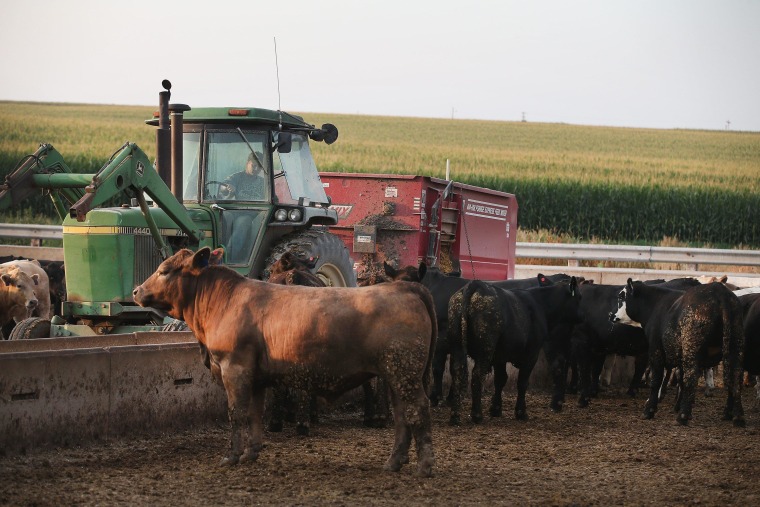Iowa appears to be on the brink of something that the state hasn't experienced in almost 20 years, a tight Senate race. And a close look at the state reveals a handful of rural counties that may hold the key to victory in the race to fill the open seat being vacated by Democratic Sen. Tom Harkin.
Iowa is often something of an outlier politically, and its senate races have been case in point. Counties in the Hawkeye State have not consistently voted Republican or Democratic, they have flipped back and forth to support the state’s long-serving incumbents, Harkin and Republican Sen. Charles Grassley.
In 2010, Mr. Grassley won 98 of the state’s 99 counties as he stomped to a 31-point victory. In 2008, Mr. Harkin won 94 of 99 counties on his way to a 25-point win.
That likely has a lot to do with those incumbents who have done a lot for Iowa.
But absent an incumbent on the ballot this year – neither Democratic Rep. Bruce Braley nor Republican state Sen. Joni Ernst have that kind of resumé – how does one get a handle on 2014 in Iowa?
It helps to look at the last state-wide elections won by a Democratic president candidate - President Barack Obama’s 6-point win in 2012 – as well as the last state-wide election won by a Republican presidential candidate - President George W. Bush’s less-than-a-point triumph in 2004. In those races, eight counties flipped from Republican to Democrat: Allamakee, Benton, Bremer, Cedar, Louisa, Marshall, Union and Woodbury.
Those counties are scattered around the state but hold a few common traits. They are largely rural – only Woodbury has more than 100,000 people in it. And all of them, except for Allamakee, fall into the Rural Middle America type in the American Communities Project, a journalism/political science research organization based at the American University School of Public Affairs.
You can see all those counties in royal blue on this map.
Generally speaking, Rural Middle America is not good territory for Democrats. In 2012 they gave their vote to Republican to Mitt Romney by 12 percentage points.
But Iowa is different – or at least it was different in 2012. Romney only eked out a 1-point win in the 79 Rural Middle America counties in Iowa. Instead, the counties were battlegrounds in the state.
And there is reason to believe that will be the case again this November because their story doesn't match that of other rural places.
Rural Middle America counties have largely struggled in the economic recovery period since 2010. Unemployment rates in those counties are down, but largely because fewer people are participating in the workforce.
That’s not true in rural Iowa. Not only is unemployment down in the state’s Rural Middle America counties since 2010, people are encouraged by job prospects so an additional 3,200 people are looking for work. In fact, an additional 22,000 more people are employed in those 79 counties that there were four years ago.
In short, rural Iowa has recovered more than that the rest of rural America.
Those statistics echo the economic story in six of those counties that flipped between Bush in 2004 and Obama in 2012. All but Benton and Louisa are doing much better in 2014 than they were in 2010.
What does that mean for the last few weeks of the 2014 campaign?
Iowa may be crucial in determining the final partisan composition of the senate, but it may be hard to draw larger conclusions from the vote there. Iowa’s outlier status looks like it is holding again this election.
